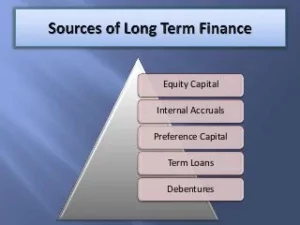Financial independence is the status of having enough income or wealth sufficient to pay one’s living expenses for the rest of one’s life without having to be employed or dependent on others. Income earned without having to work a job is commonly referred to as passive income. For more information read this full article with PK Halder.

Savings for financial independence
How to Become Financially Independent
There are several myths and misconceptions when it comes to financial planning, and individuals can take in a lot of advice from many good and not-so-good sources. Mistakes can range from confusing high incomes with wealth, to not knowing the importance of tax asset placement when choosing your investments. Review these key insights that can lead to a more financially independent life.
Understand That Income Is Not Wealth
Most people believe that the key to having wealth is a high-paying job. Yes, it’s easier to amass assets if you have more monthly income, but one key to increasing your net worth is to spend less than you make. Ultimately, spending habits are the reason a professional athlete making $20 million a year can quickly go bankrupt, while a bus driver can retire a multi-millionaire.

Financial freedom concept with diagram the way to freedom
Long-Term Thinking
Thinking long-term is an important characteristic of accumulating wealth and achieving financial independence, regardless of your income level. There are several considerations for long-term wealth, and they’ll differ for everyone.
Wealth factor
You have to put in long hours after years of education and specialty training to get a pay check if you’re a doctor or lawyer, but that pay check doesn’t necessarily translate to wealth. Helping to ensure your job’s security, taking initiative to achieve a promotion, or taking steps that will result in higher commissions can all be factors for wealth and ways to move toward financial independence with long-term thinking.
Assessing Your Balance Sheet
Take a look at your personal financial statement. You might already have organic investments that you can rely on in your quest for financial independence. Oftentimes, this is wealth that generates capital gains, income, and dividends without labor. The more of these investments you can afford, the sooner you can fully achieve financial independence.
Reaching a Goal
The real value of your income is partially determined by the amount you can invest to achieve a financial-independence goal. Setting this goal can be important for keeping your perspective on income in check. After you reach your goal, you can successfully maintain the lifestyle you want without working.
Create Surplus Funds to Invest
The only way to take advantage of investment opportunities is to have the money to invest. There is a certain point in successful investing where you reach critical mass, and the returns generated on your assets can change your life.
Remember That Taxes Matter—a Lot
Not all income is equal. Where and how you hold your assets can mean the difference between being somewhat well-off and exceptionally rich. Those with little or no wealth generate a lot of taxable income, while those who end up financially independent generate large unrealized gains in the form of real estate appreciation, unrealized capital gains, and profits made through tax-advantaged or tax-free accounts.
Take Control of Your Time
Gaining complete control over your time is often one factor in achieving financial independence. You may not have totally reached the investing goal that allows you to maintain your lifestyle without an additional pay check, but if you have the freedom to spend your time as you like, that might be the most powerful definition of wealth for you.

Know That Grades Do Not Correlate with Wealth
According to decades of extensive research by Thomas J. Stanley, Ph.D., author of The Millionaire Next Door, the grades one earns in school have no correlation with economic wealth and success outside the medical and legal professions. That does not mean education isn’t important—88% of American millionaires did, in fact, graduate with an undergraduate degree—but academic performance is not all it’s cracked up to be.
Find a Complementary Spouse
Your efforts toward a better, financially independent life are going to feel like struggling in quicksand, no matter how successful you are, unless your spouse is equally disciplined, frugal, and investment-oriented. The emotional, financial, and social toll that marrying the wrong person can take on your life will overwhelm almost any progress you can make in your career or pocketbook.
Invest in (Not So Glamorous) Niche Markets
Billionaire investor Charlie Munger has remarked that entrepreneurs can thrive if they specialize in an overlooked economic niche, much like animals in nature. Often, these niches are extremely lucrative but not likely to win you friends at cocktail parties.

Support Your Productive Relatives
It is almost always a mistake to provide gifts of cash and support to those relatives who are unable to generate high incomes on their own, or who are constantly in financial trouble.
Reference
https://www.thebalance.com/achieve-financial-independence-358175












Your article helped me a lot, is there any more related content? Thanks!